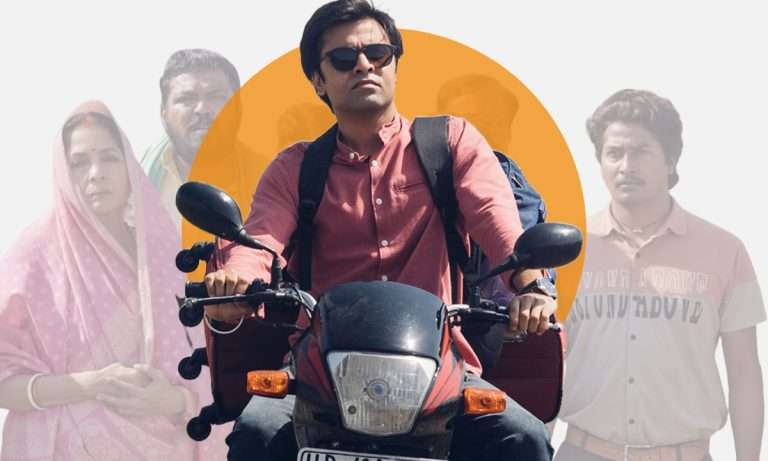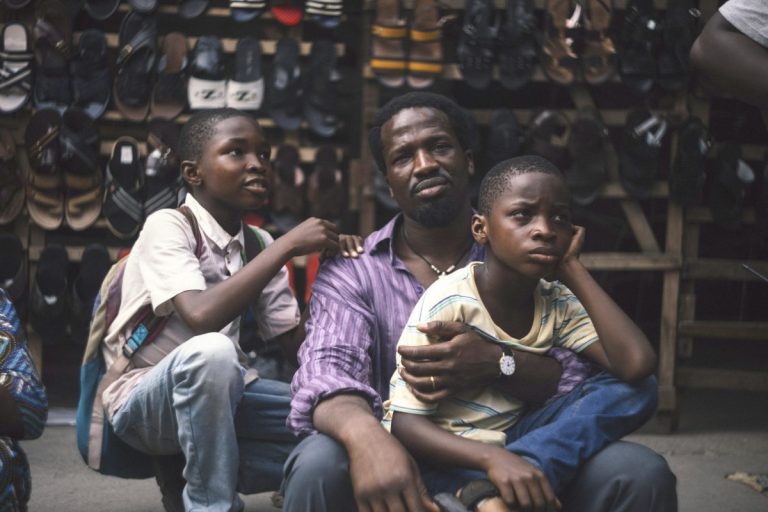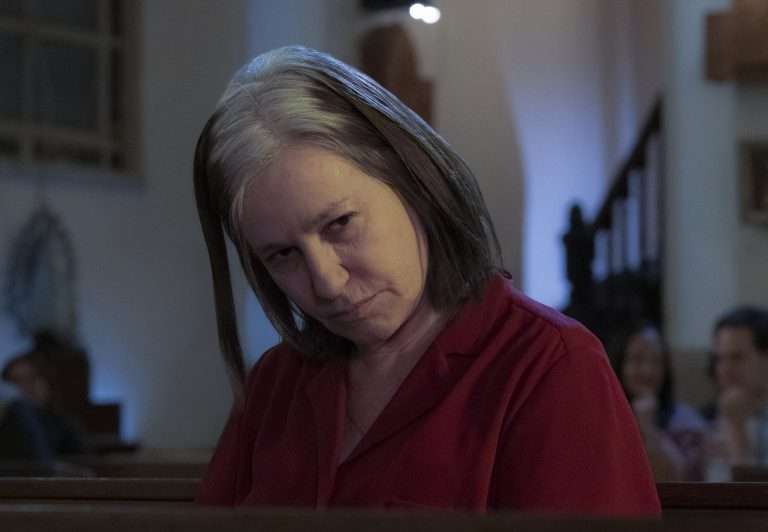Released in the year 1997, Happy Together delves into a world dominated by regular loneliness, a theme mastered by Wong Kar Wai. The movie deals with a homosexual couple, Fai (played by Tony Leung) and Ho-Po Wing (played by Leslie Cheung), on their way to the Iguazu Falls in Argentina, or in other words, towards the beginning of an ending. Wong’s films are a directory to the schemes of colors, instrumental in depicting emotions ever so poignantly. The movie begins with a monochromatic frame, where the couple is seen arguing over their way to the waterfall, and Po Wing declaring how it was “boring” to be with a guy like Fai.
The journey remains only half-attained. While Fai and Po-Wing’s ride is often shown in insipid black and white, the waterfall is depicted in all its might with the high-angle shot. It would not be too presumptuous to draw a parallel between the water gushing from both sides, meeting somewhere in between the path filled with mist and clouds, and the relationship between Fai and Po-Wing.
Wong’s poetic narration of human relationships amidst colors and nature, shrouded in loneliness, is focused on, time and again, as Po-Wing is seen to come back to Fai, scratching at an ever-fresh wound. Like a wounded dog, Fai bares his heart to Po-Wing, only to see it get eaten up like an insect nibbling on a piece of wood, slowly but surely. Their tumultuous bond is often shown to be marked with a sense of unbelonging-ness a by-product of the loneliness they carried within themselves. They are barely seen to spend time together. The regular, mundane loneliness of people belonging to a certain class is painted with precision by Wong. Fai is busy earning just enough to pay his rent, harboring a desire to return to Hong Kong, his birthplace.
While Fai tires himself at the restaurant, Po-Wing idles away in Fai’s apartment, watching TV and rummaging through his belongings. We do not see him engaging in work that could earn him money by the fairways of the world, at least. He is often shown to involve himself in a frivolous lifestyle involving other men. It does not take much reading into the characters’ psychologies to analyze the haunting loneliness running throughout their veins. Fai’s simple, introverted lifestyle, a rather easy lover, and Po Wing’s apparently glamorous lifestyle of an unsteady lover are both directed towards warding off the daunting loneliness that sat on their chest like a bull. Antonio J. Ferraria, in “Loneliness and Psychopathology,” writes, “Loneliness is isolation, but of a kind the organism dreads and could not possibly seek.”
So, the question lingers: does Wong draw an end to loneliness in the movie? Beyond class? Beyond money? Or rather, does he provide an antidote to keep loneliness at bay? This brings us to the second part of the movie, which involves Chang, a co-worker of Fai. Wong-Kar Wai’s portrayal of Chang and Fai’s bond can be argued to be poetic, a rhythm that flows in unknown avenues of sweetness and mirth. Chang might just be one of Wong’s finest creations. He’s shown to be quite the observer. He’s attentive, with a flair for deduction from his listening abilities.
Fai’s kindness draws Chang towards him, which Fai is often recognized for. Yet, the distinguishing factor between these two bonds that develop over time is the dependability Fai receives from Chang quite without trying. Po-Wing and Fai’s relationship consisted of the former’s reliance on Fai’s kindness, which was unrequited and uncared for. This is the very crux of the second bond that develops. A vital factor to note here is Wong’s use of warm light each time Chang and Fai are shown together.
The audience could detect traces of happiness in Fai’s expression while playing football together in an alley outside the restaurant. Loneliness, in that yellow hour, seems like a distant friend. In one of their interactions, Fai’s quiet demeanor does not seem to bother Fai. He seems to take a liking to Fai’s silent company, in stark contrast to Po-Wing’s interactions with Fai, where the latter would often be a boring human to spend time with. He understands Fai the way a forest understands a tree. In fact, he asks Fai to speak something into his tape recorder that he would carry to Ushuaia Lighthouse, the lighthouse at the end of the world. He promises to leave all of Fai’s sadness behind at someplace where he could never retrieve it from.
Fai is seen sobbing as he holds the recorder close. This is probably one of the rarest instances in the movie, where Fai breaks out of his shell and wails in the presence of a tape recorder, indirectly, to Chang. Until this point in the film, we do not encounter Fai opening up to Po-Wing with such raw despair colored with constant loneliness. Even though Fai keeps falling back into the self-slaughtering relationship with Po-Wing, their togetherness is marked by a lack of loneliness, which is not the same with Chang.
After the separation from Po-Wing, Fai indulges in the flippant life of erotic relationships with strangers, only to realize that “Lonely people are all the same.” The sense of un-belongingness haunts these characters throughout. Fai and Chang want to return to their native land, but money turns out to be the obstacle. The unsettling loneliness thus emerges from their inability to settle, to have a place to call ‘home’ or ‘country.’
As for reconciliation or the antidote that Wong offers, we find Fai visiting Iguazu Falls alone before he leaves for Hong Kong. He is seen contemplating the absence of Po-Wing alongside him as the water gushes down, drenching him completely. Chang is not deterred from his promise to visit the lighthouse either, discarding Fai’s grief forever. Po-Wing comes to terms with the truth of their debris of a relationship and Fai’s moving away from it.
Chang and Fai’s togetherness seems to bring a sense of consolation and comfort to both of them. This is what they choose to return to by the end of the movie. Chang revisits Argentina in order to connect with Fai before he leaves. Fai similarly visits Chang’s hometown in Taipei, where he accidentally comes across a shop owned by Chang’s family. He finds Chang’s picture at the waterfall and sneaks it into his pocket, a faint smile of assurance lingering in his eyes. Wong Kar Wai’s Happy Together thus remains an intricate and frayed quilt of emotions preserved for times to come.

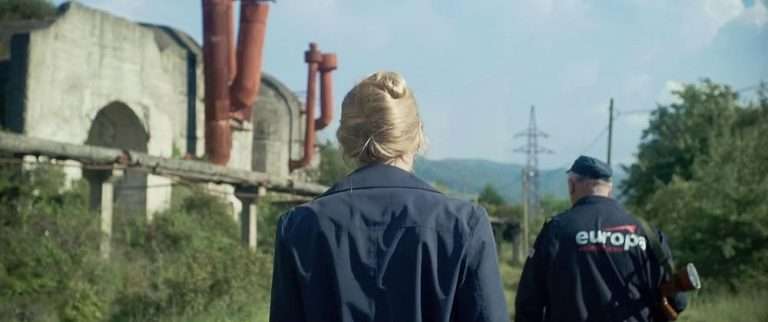
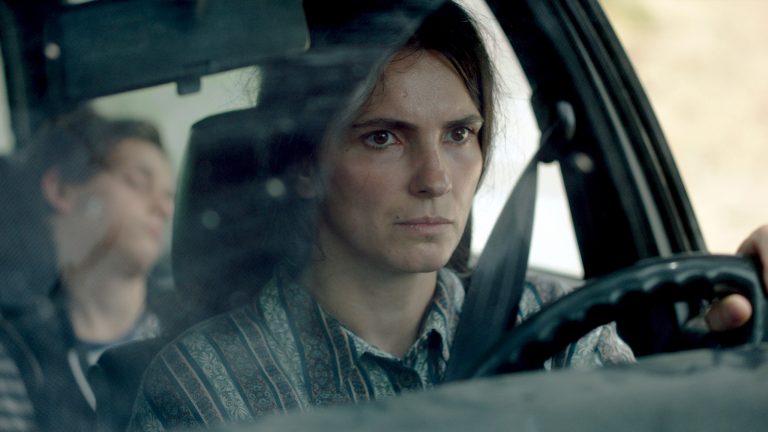
![A Spike Lee Joint: Summer of Sam [1999]](https://79468c92.delivery.rocketcdn.me/wp-content/uploads/2018/06/Summer_OF_SAM-768x432.jpg)
